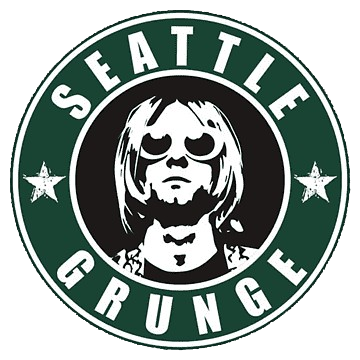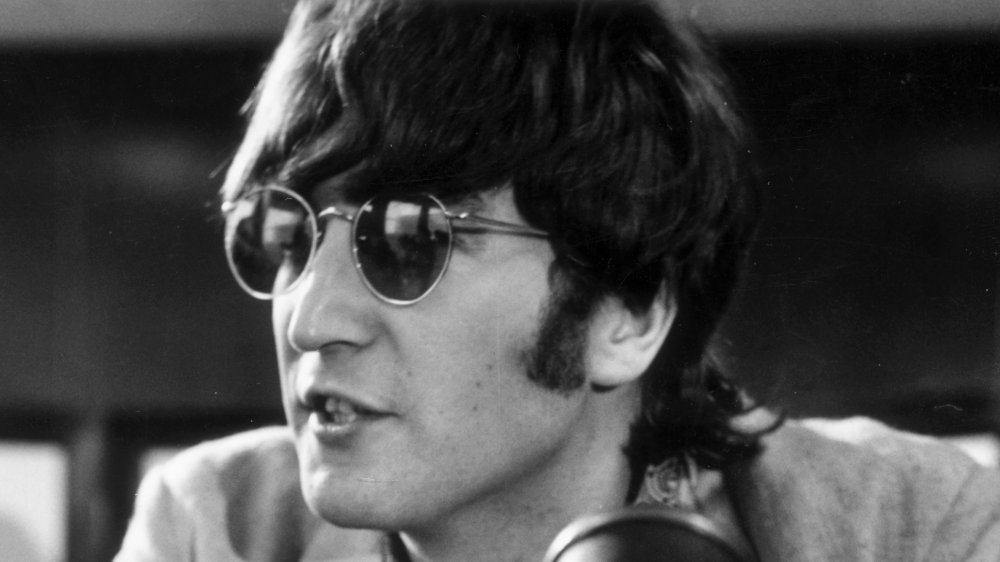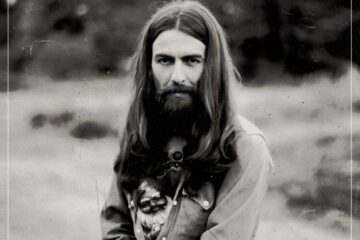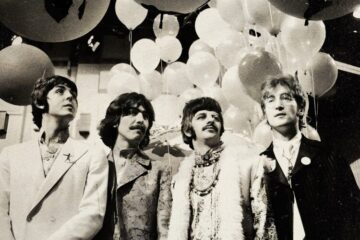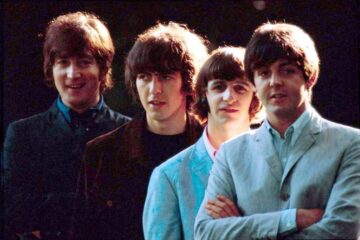John Lennon’s life was far from blissful. Instead, it was marked by a near-constant stream of chaos and misfortune—some due to cruel fate, others self-inflicted. Let’s delve into the darker side of John Lennon’s life.
Lennon had a complicated relationship with his father, Alfred. Alfred separated from John’s mother, Julia, in 1944, four years after John was born. As a result, Lennon said he never truly knew his father and didn’t see much of him until he became famous. At that point, Alfred mysteriously reappeared, but the reunion was far from smooth. In a 1966 interview, John explained, “I saw him and spoke to him and decided I still didn’t want to know him.”
In 1965, while The Beatles were at the peak of their fame, talent manager Tony Cartwright discovered Alfred working in a pub. Cartwright, noting Alfred’s own musical talents, attempted to shape him into a recording artist. Unfortunately, Alfred’s debut album didn’t sit well with John, who reportedly asked his manager, Brian Epstein, to use his influence to stop it. Whether Epstein intervened or not, Alfred’s music career didn’t take off, and his record never charted. John only saw his father one more time in 1970, a meeting that ended with John grabbing him by the collar and screaming at him. Alfred died in 1975, and John later expressed regret over how he had handled their last meeting.
Lennon’s uncle, George Toogood Smith, also played a significant role in his life. Smith was a father figure who encouraged John’s creative pursuits, teaching him to paint and draw and even buying him his first musical instrument, a mouth organ. Tragically, in 1955, Smith died of a liver hemorrhage at the age of 52. His grave was lovingly restored in 2015 as part of a celebration of Lennon’s 75th birthday. Some speculate that Smith’s death may have subconsciously inspired the Beatles’ classic, “Eleanor Rigby,” as both Lennon and Paul McCartney frequented the churchyard where Smith was buried, which also contained a grave with the name Eleanor Rigby.
One of the most traumatic moments in Lennon’s life occurred on July 15, 1958, when his mother, Julia, was killed in a car accident. Despite living with his aunt and uncle, John was close to his mother, who supported his musical ambitions and bought him his first guitar. At just 17, John was devastated when Julia was hit by a car driven by an off-duty policeman as she was walking to a bus stop. The officer was neither speeding nor drunk, but the accident had a profoundly traumatic effect on John. The policeman, constantly reminded of the incident due to Lennon’s fame, eventually resigned and became a postman—ironically assigned to deliver fan mail to Paul McCartney’s family home.
John’s relationship with his first son, Julian, from his marriage to Cynthia, was strained. Julian, who is a photographer, musician, documentary filmmaker, and philanthropist, once called his father a “hypocrite” in a 1998 interview with The Telegraph, accusing John of preaching peace while failing to show love to his own family. Despite this animosity, Julian has maintained a good relationship with his half-brother, Sean Lennon, though Sean seems less enthusiastic about keeping in touch. Julian also respects Sean’s mother, Yoko Ono, even if he doesn’t always agree with her.
Lennon struggled with addiction throughout his life, particularly heroin, which he began using around 1968. His addiction exacerbated tensions within The Beatles, already frayed due to interpersonal conflicts. During the recording of the “Abbey Road” album, Lennon’s drug use and erratic behavior made him increasingly difficult to work with, and the other Beatles were reluctant to challenge his insistence on Ono’s constant presence in the studio. Although John and Yoko eventually quit heroin, the band didn’t last much longer.
John Lennon’s personal life was also marred by violence. In a 1980 interview with Playboy, he admitted to having been a domestic abuser, including hitting his ex-wife Cynthia. He revealed that the song “Getting Better” from the “Sgt. Pepper’s Lonely Hearts Club Band” album, which features lyrics about being cruel to a woman, was about his own behavior. Lennon claimed he had changed and regretted his past actions, but his history of domestic violence remains troubling.
Even Lennon’s marriage to Yoko Ono faced challenges. In the summer of 1973, their relationship was on the rocks, and Ono suggested that Lennon have an affair with their assistant, May Pang, to take a break from each other. Lennon and Pang spent nearly two years together in Los Angeles during a period Lennon later referred to as his “Lost Weekend,” characterized by heavy drinking and reckless behavior. Eventually, Lennon and Ono reconciled in 1975.
Lennon also had battles with powerful adversaries, including President Richard Nixon and the FBI. Due to his political activism, the FBI opened a file on Lennon in 1971 and began a campaign to deport him, believing he was a threat to national security. However, after the Watergate scandal forced Nixon’s resignation in 1974, the pressure on Lennon eased, and he was granted a green card in 1976.
Lennon’s artistic career wasn’t free from controversy either. He was once accused of plagiarism by music producer Morris Levy, who claimed that Lennon’s song “Come Together” copied Chuck Berry’s “You Can’t Catch Me.” Lennon admitted drawing inspiration from Berry but settled the lawsuit out of court.
Finally, Lennon’s life ended tragically when he was assassinated by Mark David Chapman on December 8, 1980. Ironically, just hours before the shooting, Lennon had autographed an album for Chapman, who later confessed that his motivation was simply to gain attention. Chapman has since expressed regret for the murder.
